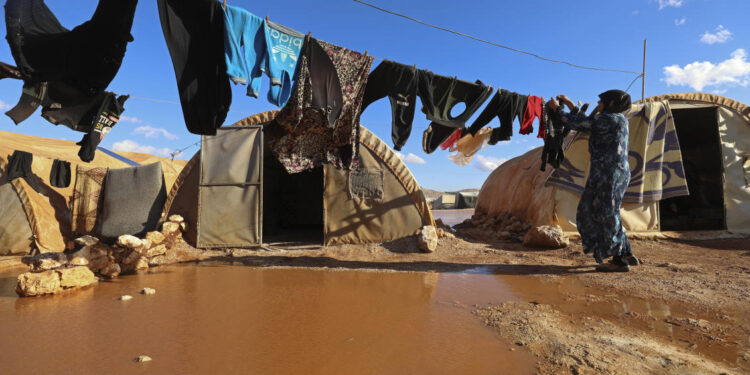UN to vote on extension of cross-border aid to Syria
The UN resolution allowing the delivery of aid across the Syrian-Turkish border to Bab Al-Hawa has been in effect since 2014, but will expire on Sunday.
Norway and Ireland, two non-permanent members of the 15-country Security Council, drafted a resolution that would extend the authorization until 10 July 2023.
Nearly 10,000 truckloads of humanitarian aid passed Bab Al-Hawa last year on their way to the rebel-controlled Idlib region of northwest Syria. It is the only crossing point through which aid can be brought to Idlib without navigating the areas controlled by the Syrian government forces.
The resolution, obtained by the AFP, calls on “all parties to guarantee full, safe and unhindered access by all means, including cross-line, for deliveries of humanitarian assistance to all parts of Syria”.
Russia, a member of the Security Council that holds the veto and ally of Damascus, has hinted in recent months that it would oppose an extension, having already imposed a reduction in the number of border crossings allowed as it violates Syria’s sovereignty.
According to diplomats, Russia finally put its draft resolution on the table, which provides for an extension of six months.
In an attempt to persuade Moscow, Norway and Ireland have inserted several amendments that touch on the transparency of humanitarian shipments, possible contributions to the reconstruction of Syria and the need to develop aid deliveries through government-controlled territory.
Russia has long demanded that the West participate in the reconstruction of Syria, but some council members, most openly France, have refused until political reforms have been implemented.
However, at a Security Council meeting in June, most countries, including the United States, offered support for funding so-called “early recovery projects” in Syria.
In this sense, the resolution of Norway and Ireland calls for “further international initiatives to expand humanitarian activities in Syria, including water, sanitation, health, education and early recovery projects”.
By Wednesday evening, few diplomats dared predict whether the additions would be enough to persuade Russia to accept a one-year extension.
But some told AFP that a last-minute compromise was possible, making the six-month extension renewable for another six months pretty much by default.

















